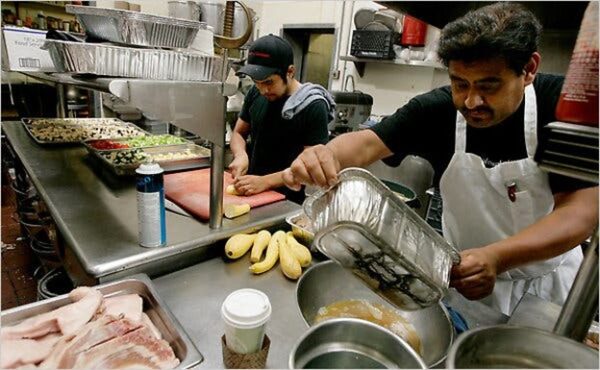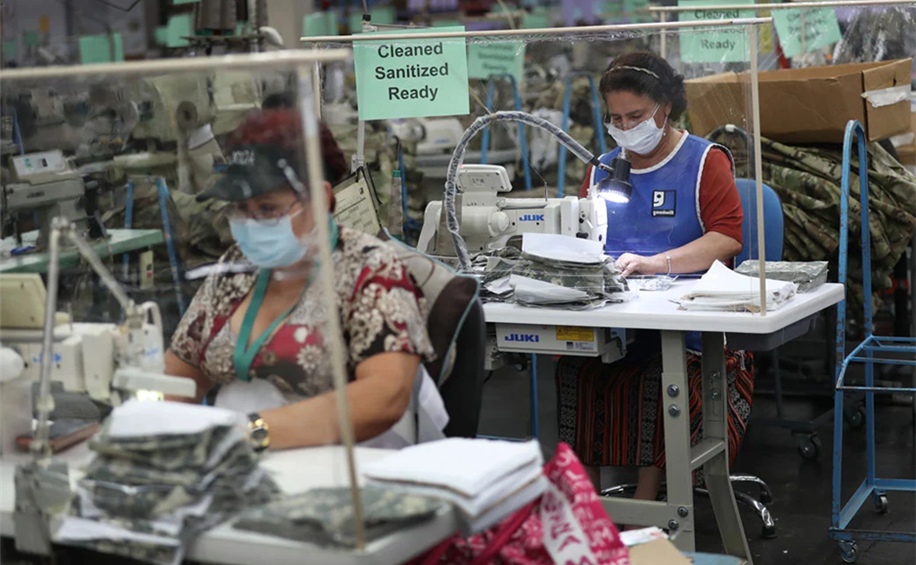Work is killing Latinos.
Loss of life expectancy due to COVID, especially for marginalized groups, has become a common trope in the mainstream media.
The reality for Latinos counters these assumptions. Their life expectancy began declining long before COVID. That story was not headline-grabbing. It was not a public health or policy priority.
Chicago vividly and shockingly illustrates the dramatic drop in life expectancy among Latinos pre-COVID and the significant exacerbation of the drop in life expectancy during COVID.
Between 2019 and 2021, Chicago Latino residents saw a more than a 3-year drop in life expectancy, the steepest decline for any group.
Between 2012 and 2020, Latinos lost 7 years of life expectancy, the most for any group.
High numbers of deaths among the young drive the numeric decline in life expectancy. Several studies document premature mortality, examining who dies young and why. Reasons for these premature deaths include smoking, obesity, suicide, heart disease, and lack of access to care.
But a recent study in the Journal of the American Medical Association finds significant excess death and increases in mortality risk for low-wage workers, especially those with employment fluctuations. This helps to understand the precipitous drop in life expectancy among Latinos.
About 50% of Latinos in Illinois earn less than $15 per hour.
All would agree this is a low wage.
Latinos are disproportionately represented in seasonal jobs such as landscaping and agriculture, personal services such as housekeeping, and the hospitality sector. All these occupations are precarious. COVID intensified precarity.
One Latino service worker noted that his income has never been consistent.
Before COVID, he did not get paid if the business was slow or the restaurant closed for deep cleaning. With outstanding bills, he had to find temporary work to make up for the lost income. A stressful and challenging situation.
Then came COVID.
During the pandemic, approximately 95% of restaurant workers saw a decrease in wages or lost their jobs. When things started to open, it was slow. Paychecks were less than in the pre-COVID period. He noted that he was still behind on his bills, picking up work here and there.
He does not sleep, his wife worries, and his kids have told him they do not need to eat every day. He and his family live with much stress and not enough money.

A Latina personal care worker noted that before COVID, she did not see a pay raise when her clients did well.
They bought new furniture, cars, and jewelry and often remodeled their home. Then COVID came.
Because the pandemic impacted everyone, she hoped wages would more fairly compensate her when she returned to work. Instead, she discovered her clients boasted of increased salaries and the advantages of working from home.
When this woman asked her clients for a slight wage increase, many of her “devoted” clients, as they referred to themselves, said no.
This worker found herself in the untenable position of receiving no wage increase but desperately needing the work. She works for what her clients are willing to pay. She shares that she “waits for the other shoe to drop.”
COVID has exposed the precarious nature of Latinos’ work situations. It worsened the downward trend in life expectancy among Latinos.
Reversing this trend is complicated.
It requires more than access to health care, health insurance, preventative care, and adequate nutrition. Low-wage tenuous jobs held by many Latinos contribute significantly to declining life expectancy.
To reverse this decline, we must first confront and then redress the social, political, health, and familial costs of structural inequities.
The familiar refrain of “the poor pay more” captures the cost of cheap labor.
Low-wage Latino workers pay with their lives. It is a cost that no person, family, community, state, or nation should have to pay.
Noreen M. Sugrue is currently the Director of Research at the Latino Policy Forum. Before joining the Latino Policy Forum, she was a professor at the University of Illinois at Urbana-Champaign. She is the author or co-author of many articles and book chapters. Her international and domestic research focuses on immigration, immigrants, gender, health care, and the workforce centering on inequity, inequality, and distributive justice. In addition, she analyzes and evaluates the construction and implementation of social policies to address and redress inequities.

